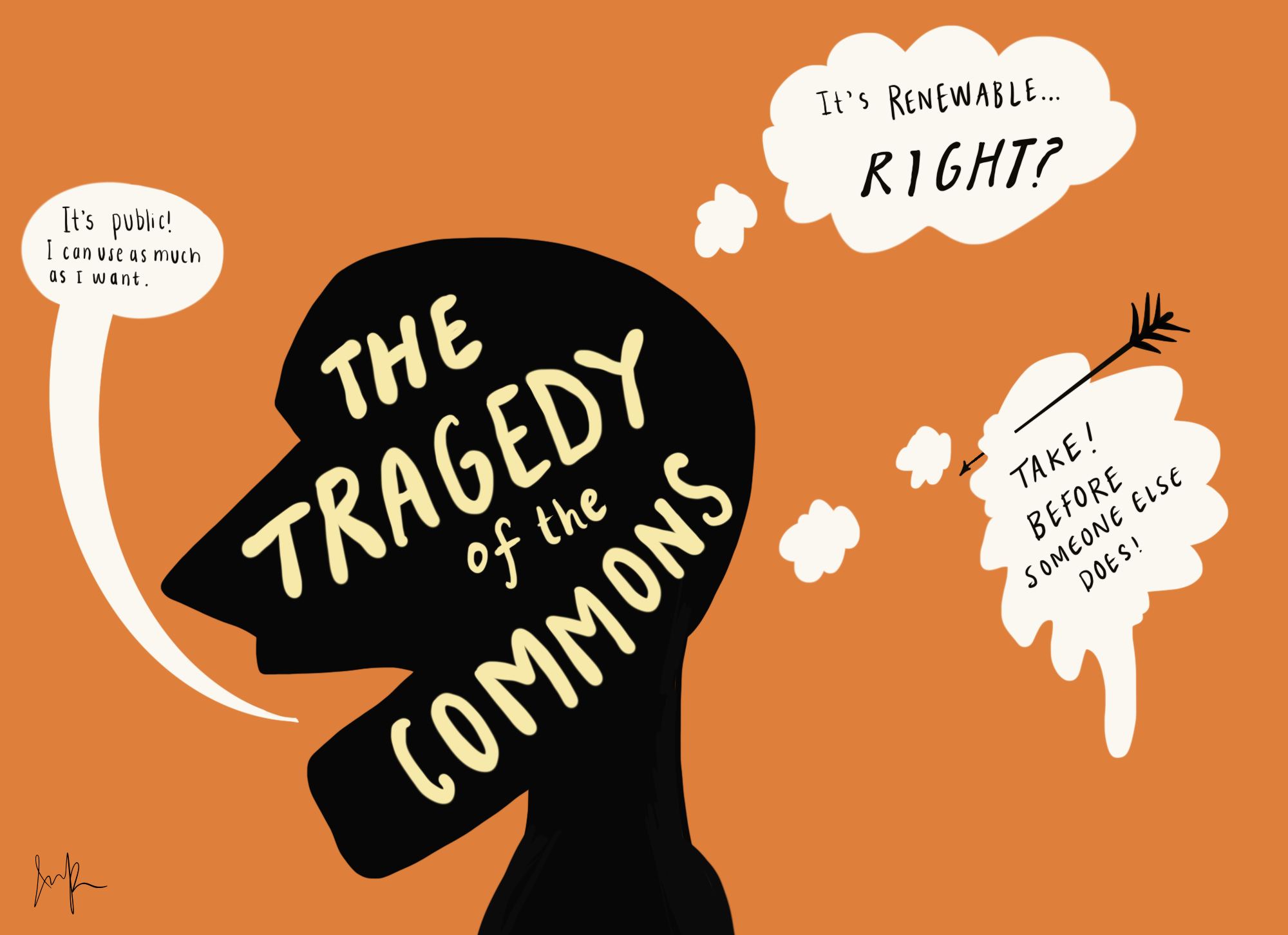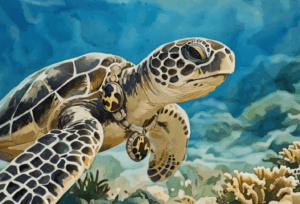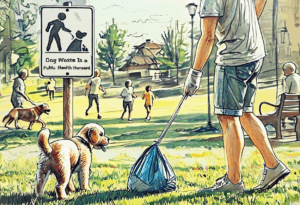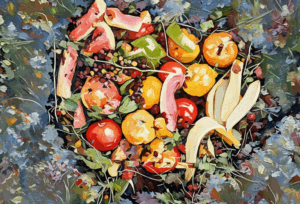Illustrated by Julianne Park. All rights reserved.
To understand the Tragedy of the Commons, we must first understand the concept of sustainability. What is sustainability?
It is the ability of the Earth’s natural systems and human structures to survive, thrive, and adapt to the changes in the environment perpetually.
To put it simpler, to state that something is sustainable is to claim that it will be able to sustain life on Earth indefinitely.
Thanks to Mother Earth, much of our natural processes are the reasons why we live with so many renewable resources.
However, those natural processes can only sustain on a small level. When our exploitation and degradation of these resources surpass the planet’s ability to replenish them, that is when we have a problem.
The Tragedy of the Commons is the degradation of commons that are open-access and renewable. This means they are not privately owned and can be used by anyone.
Take the fish populations in the ocean, for example. Humans depend on fish as a food source in many parts of the world. And since nature’s processes replenish the fish population, small-scale fishing is sustainable if the number of fish caught does not exceed the reproduction of new populations of fish.
However, large-scale industrial fishing is catching fish by the millions. Entire fish populations are collapsing, causing famine and food scarcity in many regions of the world. This is an example of the tragedy of the commons. People have exploited and degraded an open-access “renewable” resource, such as fish.
The thinking process for the Tragedy of the Commons goes a little something like this:
There is a body of water full of fish.
A fisherman looks at this public free source and admires the teeming populations of fish. He catches lots of fish because there is no regulation against it, nor will it impact him. In fact, catching more fish will benefit him—in the short term. So every day, he catches a few more than he actually needs.
There isn’t a problem yet. Earth’s natural processes will replenish the fish populations in this small-scale withdrawal of fish.
The fault lies in the fact that several fishermen share this thinking process. Imagine not just one but twenty fishermen going out to the fishing grounds and catching lots and lots of fish.
At a larger level, it is difficult and slower for the fish populations to refill. And after a duration of exploitation and decline in fish, the fish population could collapse entirely.
And that’s where everything circles back.
While in the beginning, fishing more than one “could chew” was beneficial. In the long term, the fish population collapses and leaves these fishermen with no fish to catch at all.
The “sustainable” approach to fishing, in this case, would have been for each fisherman to fish a certain “sustainable” number of fish every day. This way, it would help their business survive in the long term while also avoiding the collapse of fish populations and, consequently, ecosystems.
In a case like this, nobody wins.
With our population growing rapidly, the demand for our planet’s resources is increasing as well. Therefore, the instances of the degradation of our planet’s life systems are also rising.
Why is this important? Understanding what the tragedy of the commons is and what sustainability is will help us learn how to live sustainably.
The views and opinions expressed are those of the authors and do not necessarily reflect nor represent the Earth Chronicles and its editorial board.





